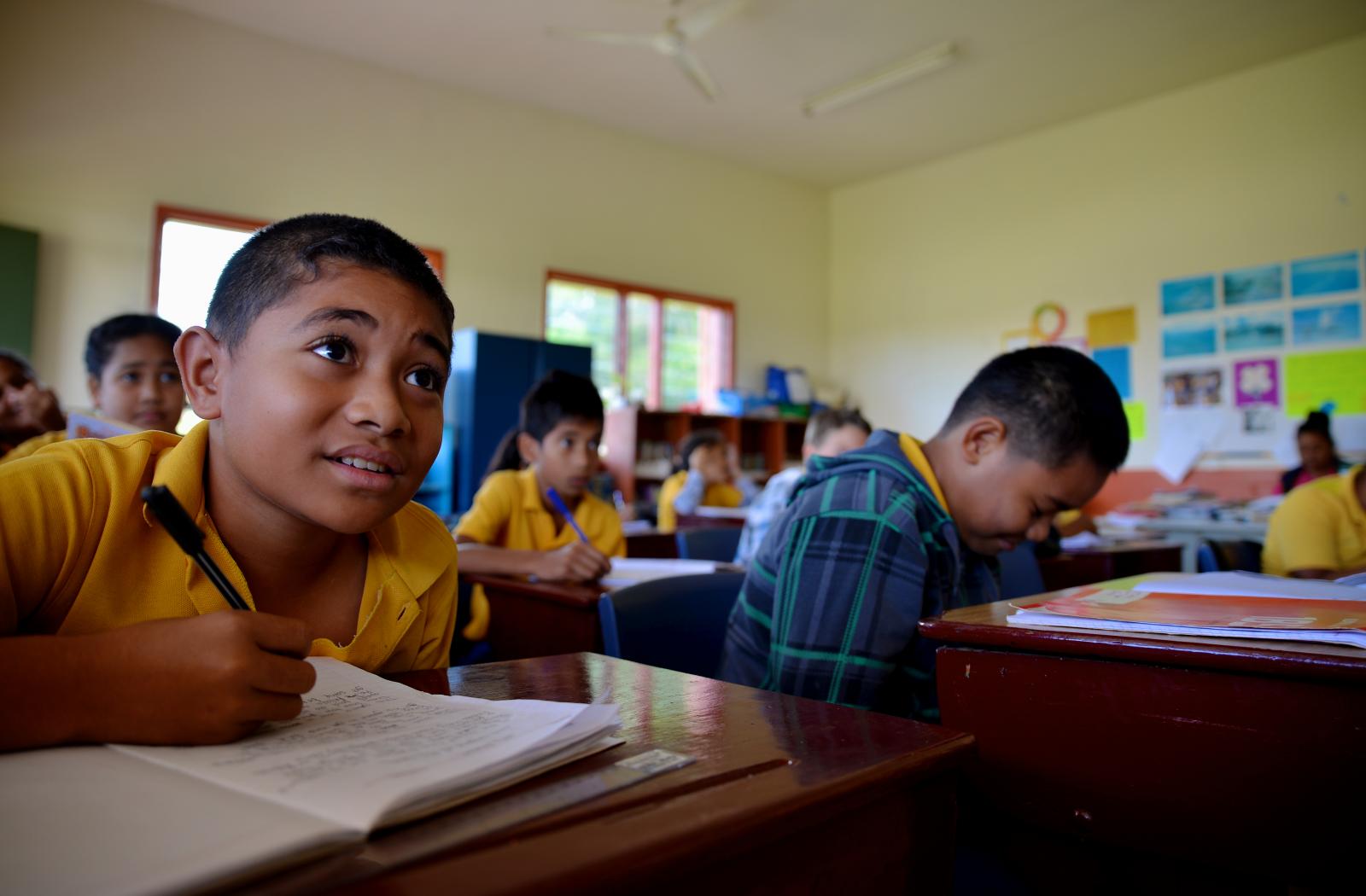Speaking at the launch of a new ground-breaking report on boys’ disengagement from education, Commonwealth Secretary-General, Patricia Scotland, reaffirms the Secretariat’s commitment to the 2030 Agenda of advancing education for all

On 7 April 2022, UNESCO in collaboration with the Commonwealth Secretariat and Promundo hosted a webinar in support of the launch of a new ground-breaking report, “Leave No Child Behind: The Global Report on Boys’ Disengagement from Education”, which shows that more boys are currently out of school than girls today and are at a higher risk of failing to advance and complete their education.
The virtual launch was attended by stakeholders from the education sector and included addresses from the Commonwealth Secretary-General, The Rt Hon Patricia Scotland QC, UNESCO Assistant Director-General for Education, Stefania Giannini, Lesotho’s Minister of Education and Training, Hon. Mamookho Phiri, Jamaica’s Minister of Education, Hon. Fayval Williams, among others.
This first-of-its-kind report sheds a light on the factors driving boys’ disengagement from education and seeks to answer important questions such as what can be done to realise boys’ right to education. The report offers a comprehensive analysis and evidence from over 140 countries and includes five case studies, among them Lesotho and Fiji, which are members of the Commonwealth.
In a video message, the Commonwealth Secretary-General, The Rt Hon Patricia Scotland QC, said:
“So often we focus our discussions on equality in education around girls – and it is right that we have that focus. But all children deserve the best chance to unlock their potential and unleash their talents.
The promise of the 2030 Agenda for Sustainable Development – to leave no one behind – must mean exactly that. But we know that boys are being left behind. Boys are at greater risk than girls of repeating grades, failing to complete different education levels, and of having poorer learning outcomes in school.
This has been a major and persistent challenge for Commonwealth educators and policymakers – and the Secretariat has been engaged in boys’ disengagement in education for a decade.
And in seeking to give every child the best education, and the best chance in life, UNESCO – and everyone bound together in this shared mission – have a willing partner in me, and in the whole Commonwealth Secretariat.”
Stefania Giannini, UNESCO Assistant Director-General for Education, said:
“The right to education must be realised for all. This report covering over 140 countries shows the widening scale of boys’ disengagement from education and the urgency of taking decisive steps to keep them in school and support them throughout their education. The social and economic costs of not doing so are high and stand as a tall barrier to achieving gender equality in and through education and beyond.”
Drivers of boys' disengagement from education
The cost of boys’ disengagement from education is enormous and yet there are a few programmes and policies addressing this.
According to the report, 132 million boys are currently out of school compared to 127 million girls and although girls have more difficulty accessing education and make up the majority of out of school children at primary level, boys face increasing challenges at later stages – they are at greater risk than girls of repeating grades, failing to progress and complete their education, and having poorer learning outcomes in school.
The report noted that poverty and the need to work are among the most important drivers of boys' dropout. Gendered norms and expectations, harsh discipline, bullying, and practices such as the streaming of classes and gender segregation also contribute to boys' low motivation, underachievement, and disengagement from education.
Key findings
- Boys are more likely to repeat primary grades in 130 out of 142 countries
- In 73 countries, fewer boys than girls are enrolled in upper-secondary education, while the opposite is the case in 48 countries
- Globally only 88 men are enrolled in tertiary education for every 100 women
- Of the 160 million children engaged in labour activity in 2020, 97 million were boys
Alongside the key findings, the report also offers a series of concrete recommendations and solutions to prevent boys’ dropout, make learning safe and inclusive, invest in better data and evidence, build and finance equitable education systems, and promote integrated and coordinated approaches to improve education for all learners.
Supporting boys’ education, however, does not mean that girls will lose out and vice-versa, the report argues. Addressing boys’ disengagement not only benefits boys’ learning, employment opportunities, income and well-being, it is also highly beneficial for achieving gender equality and desirable economic, social and health outcomes.
To leave no child behind, the report notes, governments, development partners, communities, schools, families and caregivers, and students, must work together, with actions tailored to countries' specific contexts.
Read the full report
Watch the launch
Education in the Commonwealth
Given that 60 per cent of the Commonwealth’s 2.5 billion population is under the age of 30, education has long been an area in which the Commonwealth makes a distinct contribution.
The adoption of the Sustainable Development Goals (SDGs) and 2030 Agenda highlights the urgent need for access to education for all. Through its education programme, the Commonwealth Secretariat works with member countries to ensure that all Commonwealth learners, regardless of social background, benefit from equitable access to good quality education.
The launch of the UNESCO report takes place a few weeks ahead of the 21st Conference of Commonwealth Education Ministers (CCEM) which will be held in Nairobi under the theme, ‘Rethinking Education for Innovation, Growth and Sustainability post-Covid-19’, where ministers, stakeholders and development partners will share knowledge and good practices, identify areas of action, and explore innovative approaches that can be adapted by member countries to develop sustainable and resilient education systems.
The high-level conference also takes place at a time when the world is recovering from the impacts of the COVID-19 pandemic, which exacerbated existing inequalities the world over. Education was not spared. And with eight years left to meet the goal of ensuring inclusive and equitable quality education for all, the timing of this conference is crucial.
Education is a pathway to socio-economic development, and the Commonwealth is committed to ensuring that this pathway is not blocked. Collaboration with the wider Commonwealth family, with its diverse resources and expertise, is key and offers the potential for member countries to take a new course in building sustainable and resilient education systems. To this end, the Secretariat works with organisations such as the Commonwealth of Learning (COL), the Association of Commonwealth Universities, the Commonwealth Foundation, and other development partners.
When it comes to boys’ education, the Commonwealth has been engaged in various policies and programmes. Jamaica, for example, adopted policy recommendations of a study commissioned by the Commonwealth Secretariat that examined the reasons for the underachievement of boys in the Caribbean member state.
Learn more about The Commonwealth’s education work
Media contact
- Angela Kolongo Communications Officer, Communications Division, Commonwealth Secretariat
- E-mail | +44 7587 881503



